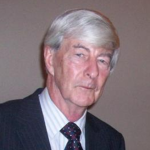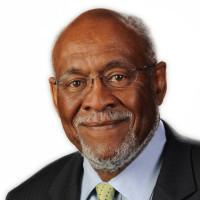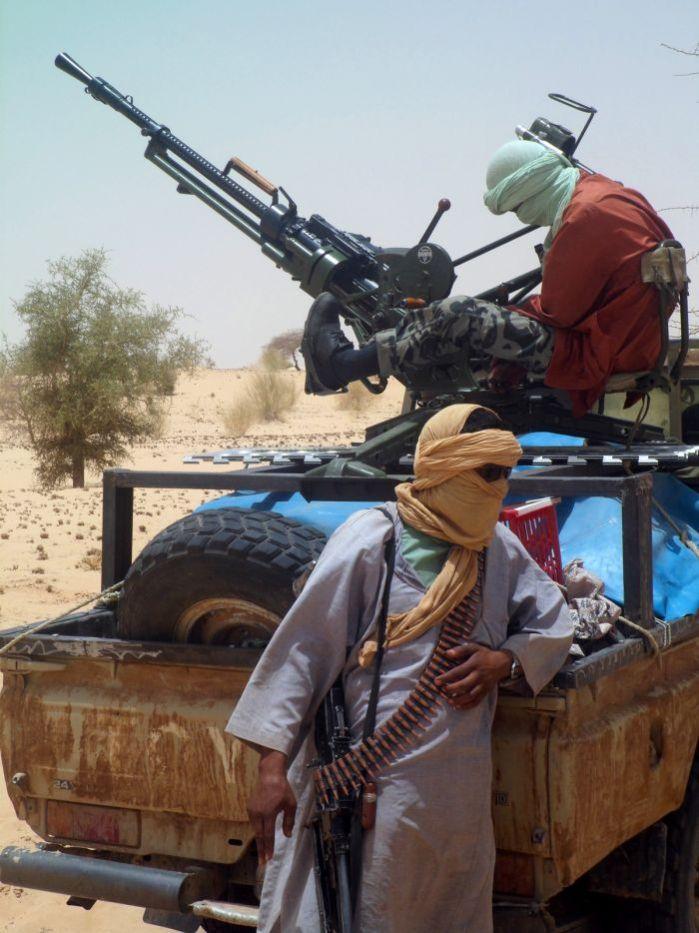More on SPLA-2
I came across SPLA-2 while in the Nuba Mountains in April. Al Bulola had just been visiting senior SPLA commanders, in South Sudan and in South Kodofan, claiming that he had 40,000 men ready to join the movement and looking for logistical support. The SPLA’s high military command in Juba had never heard of him or his alleged army, and ordered its officers and cadres to have nothing to do with him.
According to Cmdr. Jagod Makwar, head of the JIUs in the Nuba Mountains, Al Bulola first visited Riak Machar in Juba. From Juba he travelled to meet Cmdr. Makwar in the Nuba Mountains, citing Machar in support of his visit. Mawkar’s suspicions about his motives were raised by the fact that he arrived in a new Land Cruiser licensed in Khartoum and by reports that he had recently ‘promoted’ more than 50 “˜SPLA’ men in Um Burumbita, a centre of mobilization of Arab militias. None of the 50 was known to the SPLA and none had weapons.
A second so-called “˜rebel movement’ is causing concern in the mountains and, like SPLA-2, is widely suspected among Nuba of being part of government strategy aimed at disrupting elections. The Central Sudan People’s Liberation Army announced itself in the Khartoum newspaper Al Rai al Aam on 17 February 2008. Its founder, Juma Wakil Hamad Angil, a 40-year-old physician and former SPLM chairman in Gezira state, told me he began the movement because the CPA has failed to deliver development and basic services. He said the Nuba were marginalized within the SPLA, criticized the SPLA for using the Nuba to fight in the South and then leaving the mountains ‘without security,’ and called the SPLA Manifesto ‘a lie’: it promised a New Sudan, but the SPLA was ‘planning for separation.’
Dr. Juma’s expressed support for Telefon Kuku, an SPLA officer arrested for mutiny after handing Buram to the government without a fight in 1993, has led many Nuba to question his allegiance and his motives.







Dear Julie
The main question is who is behind SPLA2, and how did they managed to get enough resources to open an office in Amarat Khartoum the cheapest office’s rent in this neighbourhood is $1,500 per month and that is a lot off money in Sudan. To establish a military movement in the Nuba mountain is very easy, there are too many former SPLA combatant in the area been left by SPLA without any source of income, they are disillusioned with the CPA and the betrayal of SPLM to them, many of them are ready to go back to war again. Juma Al Wakil or anyone can exploit that.
Telephone Koko is just been used by Al Tayeb Mustafa the owner of AL Entibaha newspaper it is a one issue newspaper it’s main objective is to discredit SPLM leaders, and spreading fear among people of the north and asking for self-determination for the north, Telephone writes regular articles in this newspaper attacking SPLM Nuba leaders mainly Abdul Asis Al Helow and other.
Al Bolola was a former army sergent sacked from the army because of corruption, there are no evidence that he has any link with the NCP even though he is from Ombarmnita’s Hawazama (Aytga), and there Arab militia linked to the NCP under Al nazir Al Nour Al Tahair(the head of Hawazama tribe)
I find this article very interesting:
1. I do not think the people of SKS need another war of mutual destruction. We have had enough. Individuals, like Balula do have precedents shuch as Musa Hamadain who formed “Shahama”. It ended in a sham, after Musa’s demise. Musa had been a Commissioner, an NCP official in the Eastern District of SKS.
2. What SKS needs is dialouge for social peace. For common objectives. For peaceful co-existence. This needs cool examination and study to draw a statewide program. I am prepared to proceed with this effort, including, with persons like Telephone Kuku, Mekki Balayel and Muneer Shiek-eddin; the latter just brokeaway from NCP.
3. Although he has his differences with SPLM leaders, Telephone Kuku whom I met a couple of times, still remains SPLM member.
4. I am in favour of open dialouge, led by SPLM-Nuba and the ‘new’ social forces in West Kordofan Zone (WKZ), such as the infant “Shamem” movement. There is also the National Justice Party, for whom I am the Secretary General, with sizable membership from SKS, the North and the East.
5. The SPLM/A Nuba-Chapter seem to remain captive to the vague idea of “Popular Consultation”(PC). I am afraid the PC idea could not address the ‘internal colonization perspective’ that had been one of the ideological bsis of the two decades of conflict and war in the SKS.
6. We need to realise that a concerted effort diected to respect the CPA as a whole and seek within the institutions it had generated to eke-out a constitutional solution, based on dialouge, for the multiple risks and challenges for SKS in the 2009-elections and towards the 2011-PC. If the people of SKS could chart the road to win the 2009-elections, then they could devise ‘laws’ that are just-and-fair to address land and natural resources management issues, revese unjust central government policies and intervention that triggered the war in 1985, and hold the positive opportunities for deciding whether or not the SKS-Ptotocol could form the bases for the (new-SKS) after 2011. Otherwise, chances could be better for individuals like (Balula).
To suggest that the government is interested in disrupting preparations for the forthcoming elections is a fallacy. The Elections Law has been passed and signed .Many opposition demands were met(e.g.inclusion of a form of proportional representation in order to make it easy for parties with very little public support to get elected). It is true that many parties are worried because they are so disunited or inefficient that they would like the elections not to take place at all.This is their problem ; not Sudan’s.They should modernise,increase internal democracy and try to attract new young menbers
instead of making outlandish demands and hinting that they might boycott the elections.
The enemies of stability ( who encouraged rebellion in Darfur when they realised that peace in the South was imminent ) are pursuing the same
tactic of igniting another fire to force the National Unity Government to fight on two fronts and claim that the CPA is stumblig .
In this interesting discussion I would like to make a few comments.
The issue of ‘the Government aiming to disrupt the elections’ is confusing, mainly because Julie Flint seems to adopt the equation of the NCP with the Government that many Nuba people continue to use, specially Nuba living in the SPLM administrated areas. But perhaps the Nuba are indeed suspicious of the Govenment of National Unity, including the SPLM – which would lead to a slightly different analysis of the situation in South Kordofan. Maybe Julie can clarify this point?
To Khalid alMubarak: when you say that many political parties in Sudan are disunited and inefficient, I would be inclined to say this defines one of the major problems of the Sudan as a whole – but you seem to think otherwise?
To Abdalbasit Saeed: you too have me confused. You say that ‘the SPLM/A Nuba-Chapter seem to remain captive to the vague idea of Popular Consultation’. I believe that the procedure of the Popular Consultation is clearly laid out in the CPA – nothing vague about it. However, how this procedure can be used to the benefit of the Nuba people, is less well understood. Yet in your point 6, you provide a very adequate description of the idea behind the Popular Consultation and the way it can be used to improve the lives of the people in South Kordofan. So what I would like to know is whether you believe that the Popular Consultation itself is a vague idea, or that the SPLM/A Nuba-Chapter have a vague idea of what Popular Consultation means?
To Julie I would like to ask another question, regarding the promotion of the fifty ‘SPLA’ men in Um Birumbita. You say this had happened recently but it must have happened before al Bulola talked to Cdr. Jagod, because he was already suspicious of him. The question is whether you happen to know if al Bulola promoted these men in between his visit to Juba and his meeting with Cdr. Jagod, or before his visit to Juba. I would be interested to know because it seems al Bulola had been active for a while prior to April 2008. If he promoted the ‘SPLA men’ before his visit to Juba, SPLA intelligence in the Nuba Muntains was aware of al Bulola’s activites, and I would think the SPLA High Military Command would be informed by the time al Bulola arrived in Juba?
And as a final comment in general, I believe the situation in South Kordofan has been tense ever since the Nuba Mountians cease fire was signed. The main problem has been a complete lack of trust between the NCP and SPLM representatives in the area and between the various armed forces. It hindered the integration of administration, Joint Integrated Units and police forces. This caused weak government and lack of security, providing a base for more tensions and violent conflicts which in turn undermined mutual trust. It seems however, that exactly these points of integration are being addressed right now, by the NCP and the SPLM, and by the Joint Integrated Units, and by the Police forces. It took a long time though.